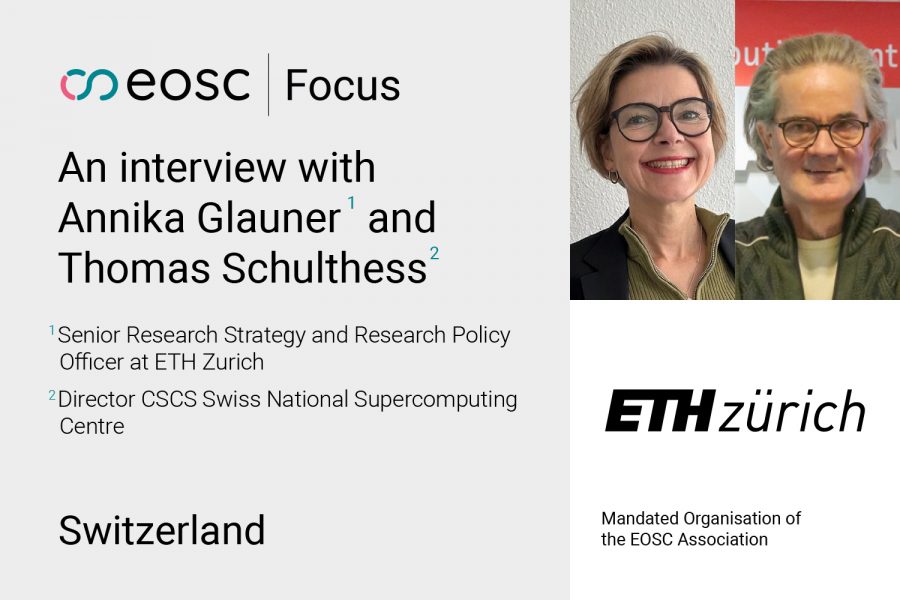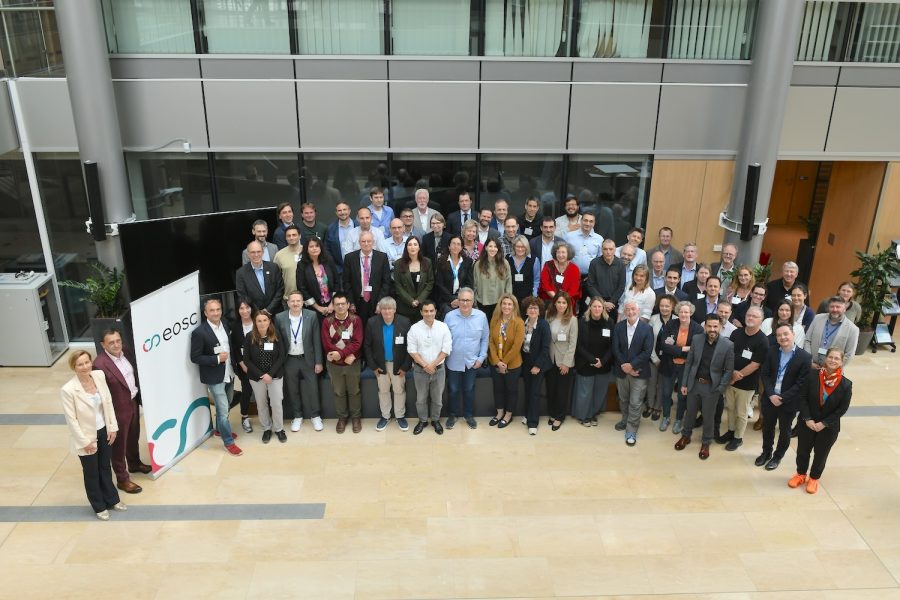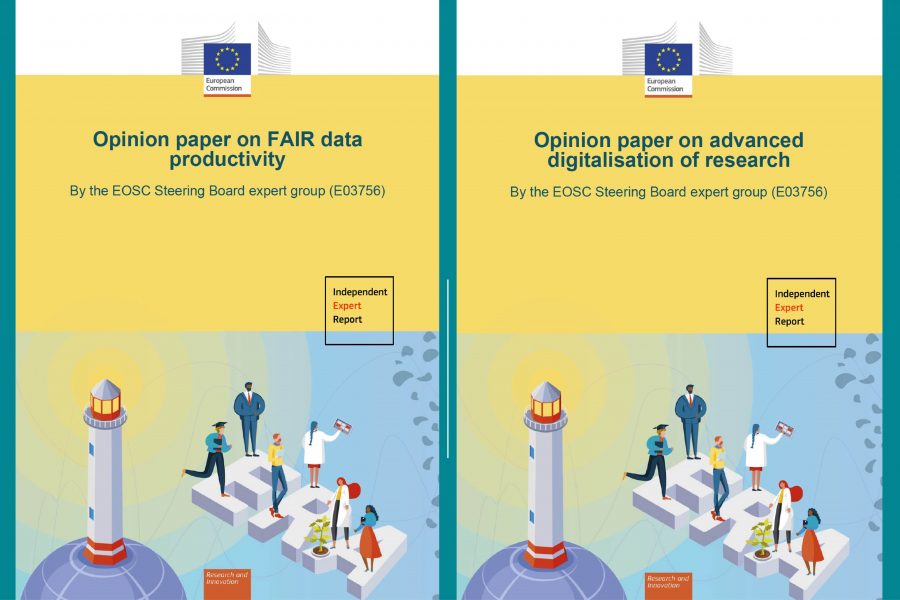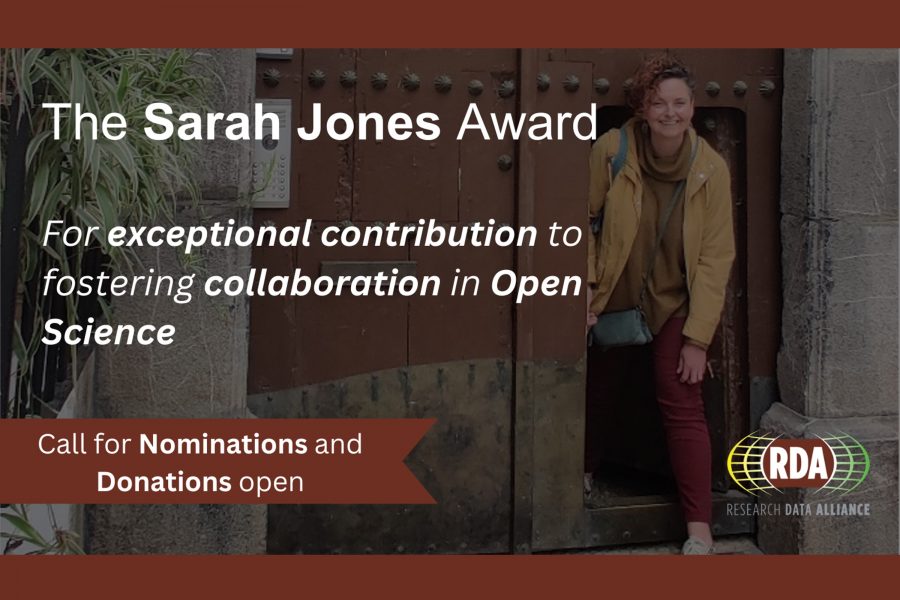LJUBLJANA—Slovenia’s second EOSC National Tripartite Event (NTE), organised by the Academic and Research Network of Slovenia (ARNES), Slovenia’s EOSC-A Mandated Organisation, took place on 14 November 2023 in Ljubljana during the first day of the 2023 edition of Slovenia’s Open Science Days.
Members of the organisation known as the Slovenian Open Science Community, participating both in-person and online, had the opportunity to listen to the latest developments in Open Science in Europe and their implications for Slovenia’s national science landscape.
The prominence of the EOSC NTE for Slovenia was demonstrated by the high-level national participation. Slovenia’s Minister of Higher Education, Science and Innovation Igor Papič and the ministry’s State Secretary Peter Sterle opened the event. Further introductory presentations were made by Director of the Institute of Information Sciences (IZUM) Aleš Bošnjak and ARNES Director Marko Bonač.
Impacts of national legislation on Open Science
The first session of the event, held in English, had an international scope and focussed on the creation of EOSC and the European Commission’s contribution to the implementation of Open Science. The effects of EU Open Science initiatives in Slovenia’s national science landscape were the subject, in Slovenian, of the second session.
The event took place in the context of the new, recently approved string of legislative actions in Slovenia that directly impact how science is done in the country. In 2021, the Scientific Research and Innovation Activities Act was adopted, followed by the Resolution on the Slovenian Scientific Research and Innovation Strategy 2030 in 2022, complemented most recently with 2023’s Decree on the implementation of scientific research work in accordance with the principles of open science and the Open Science Action Plan.
FAIR data as the new normal
In the first keynote, delivered by Javier López-Albacete from the European Commission’s Open Science Unit within DG RTD, the audience was given an overview of the EC’s vision of Open Science as “the new normal” for the practice of science in the EU, and the role envisioned for EOSC in the implementation of FAIR (Findable, Accessible, Interoperable and Reproducible) principles as the best way to make this happen. EOSC is thus part of a wider strategy for data that encompasses much more than just researchdata and information in general.
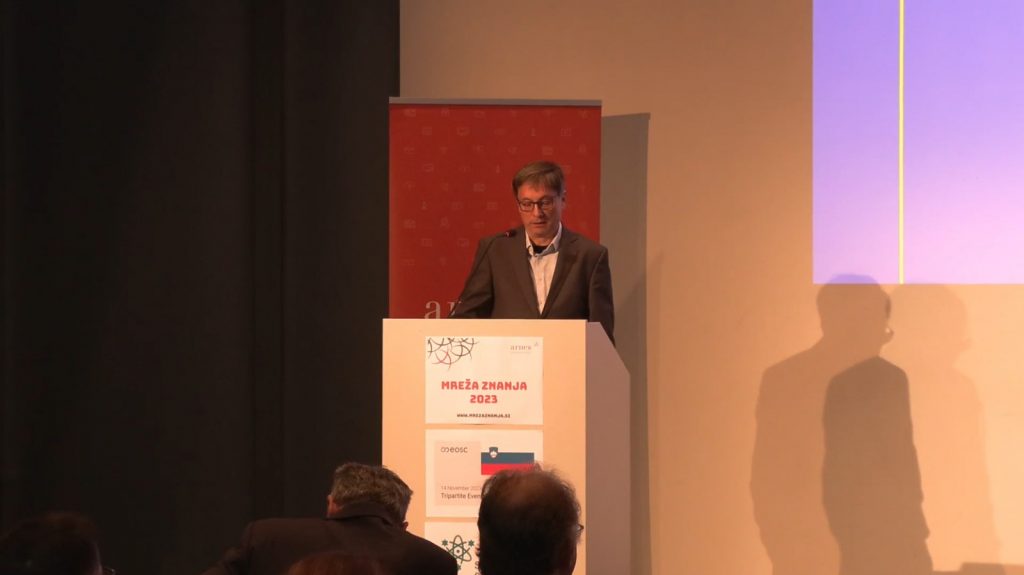
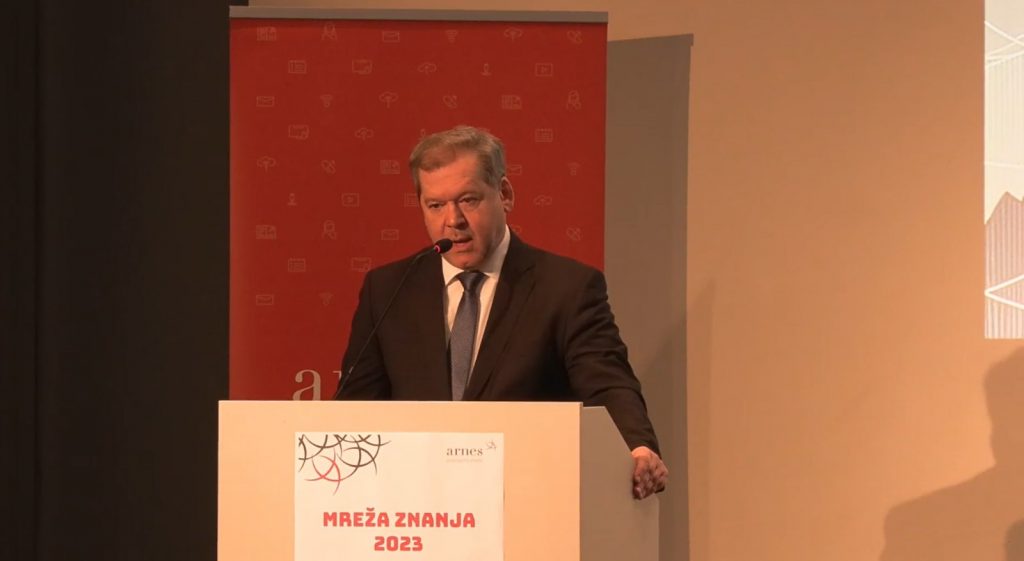
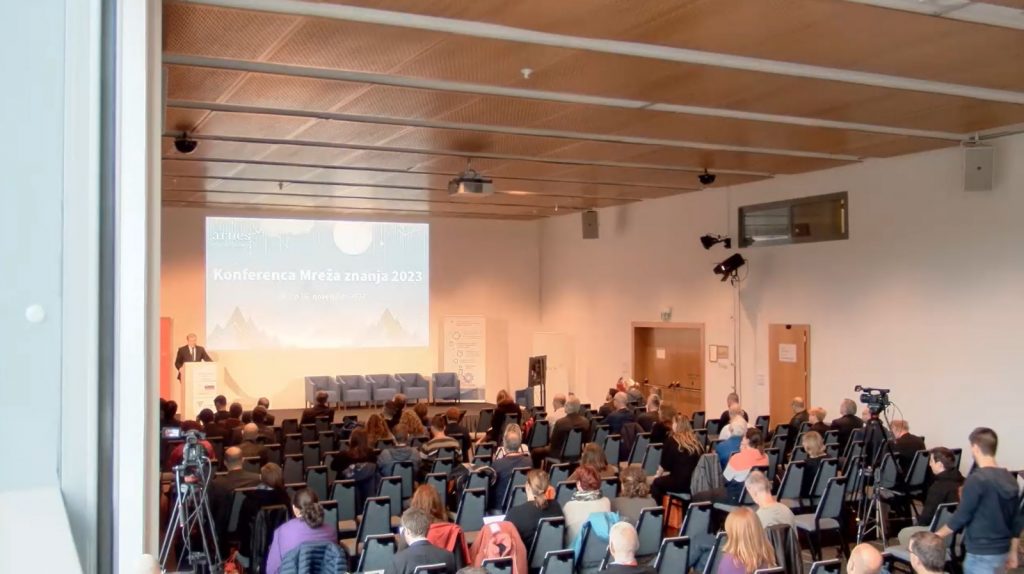
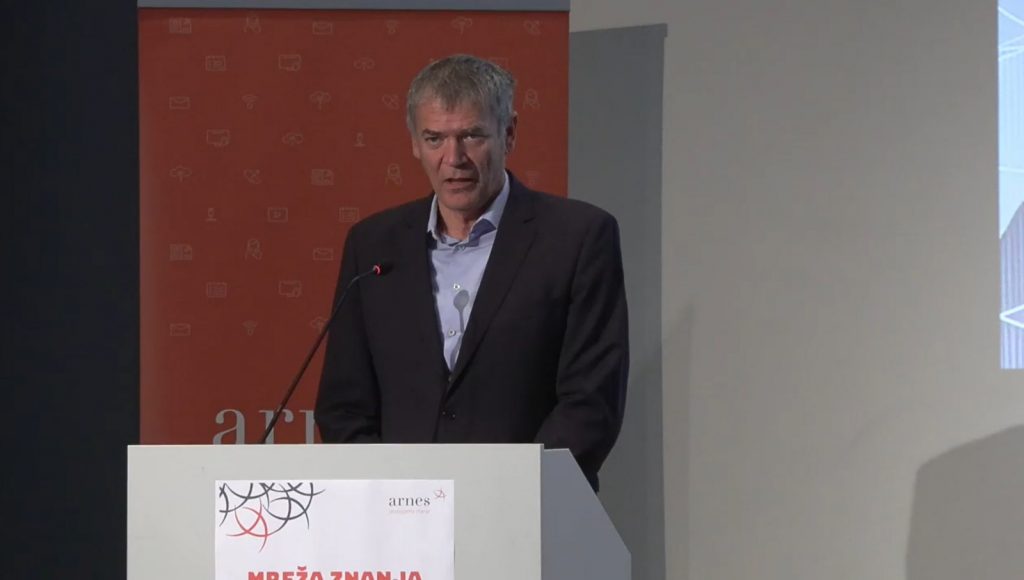
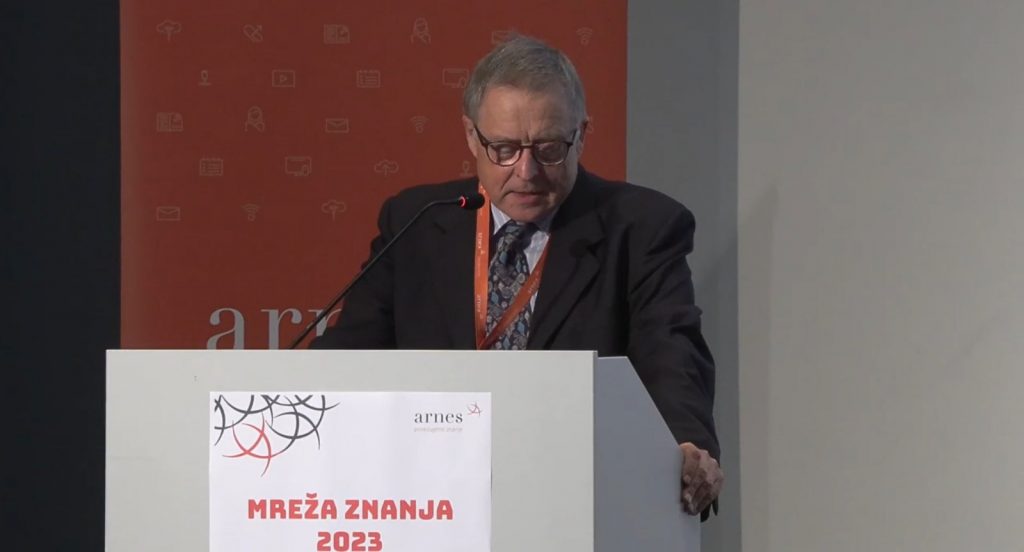
The role of national policies as the necessary instruments to make Open Science happen was also discussed, highlighting the EC’s leadership in steering the conversation in EU Member States. In order to move forward, the EC has started the implementation of the “EOSC EU node” via procured services, but to realise the vision of a functional EOSC in 2027 requires further resources, skills and support at all levels to make data FAIR.
Looking ahead
Karel Luyben, president of the EOSC Association, followed with the view from the EOSC community’s perspective. As the EC’s partner in the Horizon Europe Co-Programmed EOSC Partnership, the Association has developed a proposal for a governance and funding model for EOSC after the end of the ongoing Horizon Europe EU framework programme (2027). It is expected that decisions on the way forward will be adopted by the Partnership’s Tripartite Collaboration—including the viewpoint of EU Member States and Associated Countries through the EOSC Steering Board—over the next several months.
To close the EOSC Slovenian NTE, Dunja Legat, director of the University Library of Maribor, detailed the plans of the Slovenian Open Science Community for the adoption and implementation of Open Science in the country.


